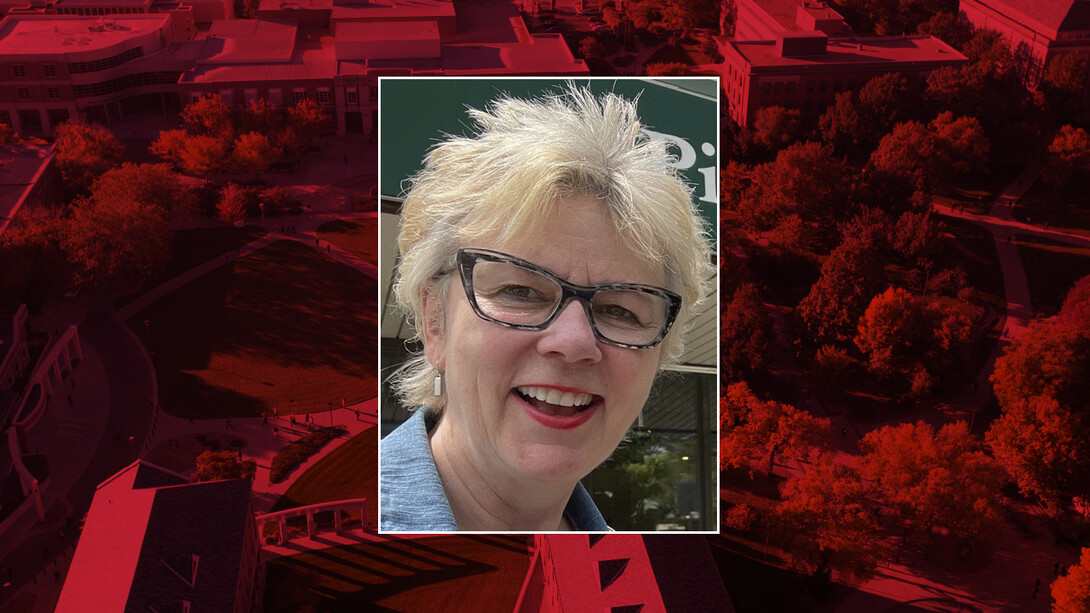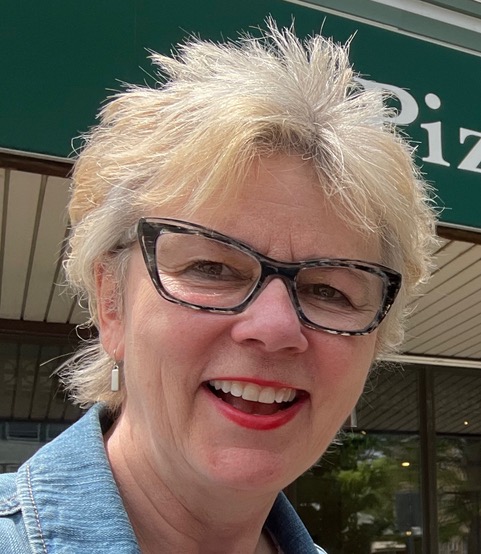
Laurie Richards, who retired last year from her role as state film officer through the Nebraska Department of Economic Development, has been named the interim programmer at the University of Nebraska–Lincoln’s Mary Riepma Ross Media Arts Center, effective June 1.
“I’m thrilled that Laurie has taken on this interim role to continue the independent film programming that our patrons have come to expect,” said Andy Belser, dean of the Hixson-Lied College of Fine and Performing Arts. “Her decades-long association with film and with the Ross as a board member made her an ideal choice for this position.”
Richards said she saw this as an opportunity to provide some continuity and consistency for the Ross as it looks to expand and build on its strong legacy.
“It is an honor for me to continue to build upon the outstanding legacy of the Ross,” Richards said. “Norman Geske had the original vision for a showcase for independent film that came to fruition with the gifts cultivated from Mary Riepma Ross. And for nearly 50 years, Danny Ladely brought an extraordinary lineup of independent films with a purpose and a commitment to ideas. He also brought a diverse lineup of filmmakers to Lincoln.
“I can’t wait to get started, to continue to challenge our patrons with the independent film programming and the National Theatre and Met Opera streaming they expect.”
Richards brings her knowledge of the industry to the position, having worked with a variety of film projects filmed in Nebraska, including Beeban Kidron’s “To Wong Foo” (1994), Alexander Payne’s “Citizen Ruth” (1995), the Coen Brother’s “Ballad of Buster Scruggs” (2018) and Chloe Zhao’s Academy Award-winning best picture “Nomadland” (2020).
Richards has also interacted with the Sundance, Telluride and Santa Fe film festivals, participating in panel discussions with industry professionals, film commissioners and filmmakers. Together, Richards and Ladely have met independent filmmakers and inspired them to be guests with their films at the Ross through the Geske Cinema Showcase.
“Danny has done a fabulous job of opening doors and bringing in more than 250 filmmakers and their work since 1973,” Richards said. “He has also made a wonderful partnership with the Lincoln Public Schools and their Arts and Humanities School to introduce these filmmakers to their students through an in-person lecture. Those same guest filmmakers also visit with students in the Johnny Carson Center for Emerging Media Arts. It’s really a win-win for the students and the filmmakers, and we plan to continue it. I am looking forward to working closely with Danny to help with the Ross programming during this interim period. We work well as a team.”
Ladely, the current director of the Ross, will stay on into the fall to assist Richards with the transition.
“Programming, among many other aspects of my job at the Ross, has been the one of the main focuses of my entire professional career,” Ladely said. “I’m excited for the opportunity to stay on and help Laurie with the transition and continue the excellent schedule of films that our patrons have come to expect. I will continue to strive toward keeping the Ross one of the best cinema exhibition programs in the country.”
Belser has worked with the Friends of Ross Board to lay out a strategic vision for the future of the Ross that expands its mission to increase its role as a community resource, engage further with curriculum across the university, grow its identity as a national film and filmmaking thought leader, increase its role as a multi-disciplinary arts center, commission filmmakers and artist residencies, and be a home for festivals and collaborations with major festivals. That work will also include defining how leadership for the Ross will evolve in the future.
“We have a great Friends of the Ross Board, who are totally committed to continued stellar programming and working with the dean to expand and deliver more programming that will allow the Ross to become a focal point for film and media,” Richards said. “The Ross will continue to be a leader, with additional programming to embrace the various industry changes.”
Friends of the Ross Board President Morissa Raymond is looking forward to expanding the reach of the center.
“Laurie has been a tremendous resource to the Ross already, and being an existing patron and contributor to the theater, she will do a great job stewarding us through the transition to new leadership,” Raymond said. “Laurie understands the importance of the Ross’ legacy and has a shared vision with the Friends of the Ross Board for creating a future for the theater that is broader and more dynamic in its expanse. We are so lucky to have this as a center for film in a small Midwestern city, and I’m looking forward to a collaborative approach to building upon the strong foundation Danny Lee Ladely and Mary Riepma Ross have built.”
Belser said he is excited for the future of the Ross.
“The Ross was built on the extraordinary foundation of visionaries like Norman Geske, Mary Riepma Ross, Danny Ladely and the many community members who are passionate about film that have served on the Friends of the Ross Board over the years,” Belser said. “After my discussions with current board members, I’m even more excited than ever about the future of the Ross. We are so fortunate to have the resources in place to truly make it one of the finest media arts centers in the country while expanding its reach as a resource for our campus and community.”








